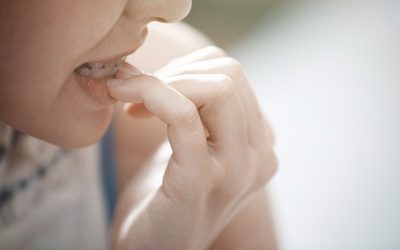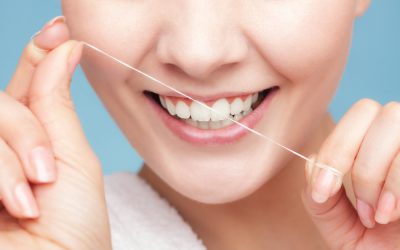Everyone has picked up a bad habit or two at some point in their lives – but while many may be innocuous or only appear during times of stress or anxiety, there are some habits that are more harmful than others, especially when it comes to dental care. Engaging in the bad dental habits listed below can be damaging to the health of your mouth, teeth, gums, and jaw in the long run, and can even cause permanent impairment. Keep reading to learn some of the most common poor oral habits, and how you can make better choices when it comes to the health of your mouth:
Bad: Sipping on soda and sugary drinks throughout the day.
Not only does excessive sugar contribute to cavities, but prolonged exposure to sugar-laden foods and drinks – from constant snacking on candy or sipping one can of soda over a long period of time – will hasten the process of tooth decay. To learn more about how sugar leads to cavities, click here.
- Better: If you are craving a Coca-Cola, drink it with a straw pointed towards the back of the mouth to limit the amount of sugar that reaches your teeth. And if you can’t get through the day without snacking, skip the chips and candies and instead reach for yogurts, fruits, and fresh veggies, which wash away easily from the mouth and won’t leave pieces trapped in the cracks and grooves of your teeth.
Bad: Crunching on ice.
On a hot day, it can be immensely satisfying and refreshing to chew on the ice cubes at the bottom of your cold drink. But the hardness of ice combined with the cold temperature can cause cracks in the surface of tooth enamel, which can widen and spread over time. Forcing large amounts of stress onto your teeth – from ice cubes, fruit pits, and popcorn kernels, for example – can precipitate tooth fractures and even break fillings.
- Better: If you need the satisfaction of a crunch and something to keep your mouth busy, opt for healthy carrot sticks, celery, or a crisp apple over ice. If your ice chewing habit is difficult to break, try switching to crushed ice, which is slightly less damaging to your teeth.
Bad: Using teeth as tools.
In a pinch, your teeth are strong enough to rip open a bag of chips, bite the price tag off a new shirt, or even straighten out a bent fork tine. But this abnormal use of your teeth can cause chips or fractures over time. And not only is the practice dangerous, it is unsanitary as well – everyday objects carry germs that linger inside your mouth, and you also run the risk of accidentally swallowing a non-edible item.
- Better: Keep everyday tools such as scissors, pliers, and staple removers within easy reach at your home, office, and even in your car.
Bad: Biting your nails.
It can be tempting to nibble away a jagged nail edge, or perhaps nail biting is your go-to activity when you feel stressed. But constantly placing your jaw in a protruding position while you bite down can cause jaw misalignment and impaction over time. And your fingernails are swarming with bacteria trapped underneath; nail biting is unhygienic, and nail bits you swallow can upset the lining of your stomach.
- Better: Invest in bitter nail polish to break the habit – or even invest in a manicure, to limit the temptation of nibbling at fresh nails. If your nail biting habit is related to nerves and anxiety, limit stressors in your life, or find a different physical activity to keep your hands occupied, such as a fidget spinner.
Bad: Grinding and clenching your teeth.
You may not even realize you grind your teeth at night or clench your jaw during the day – the most common causes of tooth grinding include an abnormal bite, misaligned teeth, stress, and anxiety. But continual grinding and gnashing can wear down tooth enamel and even crack or fracture teeth. Clenching is also a common cause of jaw pain and TMJ. Chewing on objects that are not food – such as pencils, pens, or straws – exacerbates the clenched jaw position.
- Better: Awareness of a tight or clenched jaw is the first step towards correcting teeth grinding. If you find your self clenching your jaw during the day, relax the muscles and place the tip of your tongue between your teeth, to hold the teeth apart. Practice jaw relaxation exercises and place a warm compress in front of your ears at night to soothe the tense muscles. If you grind your teeth at night, your dentist can make you a mouthguard to wear.
Poor oral hygiene at home can turn into another bad habit, if practiced incorrectly. Brush your teeth twice a day, for two minutes at a time. Avoid using a hard-bristled brush or brushing too vigorously, or with too much pressure; this can cause receding gums and sensitive teeth. Floss and rinse your teeth once a day. And start a good habit of seeing your dentist twice a year for regular check-ups. If it’s time for a routine dental exam, or if you have any concerns over your current dental habits, make an appointment to see Dr. Boyett and her team of caring dental hygienists today. Call Boyett Family Dentistry at 863-294-9200 for appointment times.





